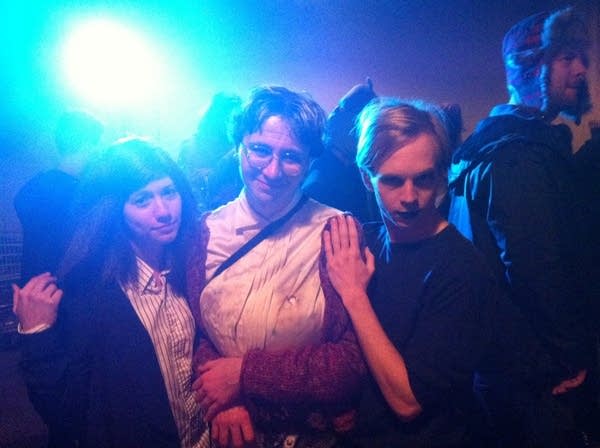How a Google Doc might make the Minnesota music scene more representative

by Aaron Bolton
October 14, 2015
In mid-summer, an open Google Doc started floating around the Twin Cities music scene. It’s a spreadsheet meant as a booking resource where musicians who identify as women, queer, and/or people of color can add their contact info, links to music and “identifying factors” into the appropriate cells. In the “identifying factors” column, dozens of local artists have described how they identify.
“I created a spreadsheet because I wanted more queers in my life,” said Nicky Leingang, who plays synth and sings in local synth-pop band B.O.Y.F. The spreadsheet allows artists to network among themselves—for example, to share bills or to collaborate.
Leingang said he was disappointed about not playing with more queer bands. For him it’s more than just mere disappointment, it’s about being able to relate to the others he shares the stage with.
“Just in general, I feel more comfortable when there are other queer people in the room. That way, when people are comparing me to who’s in the room, it’s not this stark difference, you know. I don’t have to feel like the odd person out,” said Leingang.
Leingang initially shared his list in a private Facebook group where Corrie Harrigan of the feministic punk band Kitten Forever expanded Leingang's idea and added all the girl bands she could think of. She then reshared it within the group.
The list eventually was unknowingly shared outside the group, sparking a range of reactions. Harrigan says she received some negative feedback because some viewed the list as too white, or that certain bands were not included.
“I would never want to devalue the contribution [by] any women in any band,” said Harrigan.
She then made the list completely public and shared it from her own Facebook profile, stating her intentions and her goal to create a diverse resource so shows could start reflecting what’s really out there.
“When you go to shows and you don’t see people on stage that you can relate to, kind of it’s a turnoff,” said Natalie McKay, the frontwoman of Naïve Sense. As a transsexual musician in the local punk and hardcore scene, McKay says she's continually finding that she's not alone.
[bandcamp width=100% height=120 album=4090575453 size=large bgcol=ffffff linkcol=0687f5 tracklist=false artwork=small]
What McKay and Leingang seem most excited about is the fact that tools are being created to make their communities feel safe. Leingang, Harrigan, and McKay want to help make sure underexposed musicians are finding each other and booking the shows they want.
In his efforts to help make music bookings fully reflect our state's diversity, Leingang is taking it one show at a time. “It’s not going to happen [all at once]," he says. "It’s going to happen show by show in things as small as a 14-person audience in the basement of a punk house.”
Aaron Bolton is a senior at the University of Minnesota. Currently he is a co-host on Radio K’s Off The Record and is the music reporter at Radio K. He hopes to continue a career in music journalism. This story is adapted from an earlier story on Radio K.

